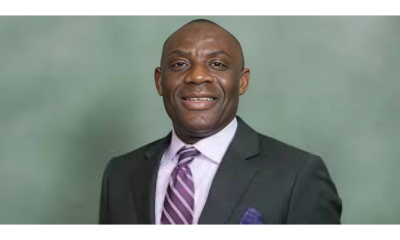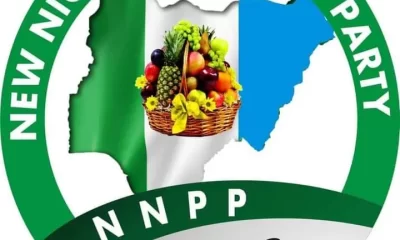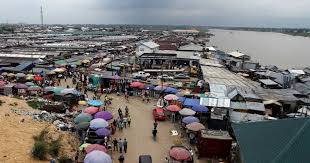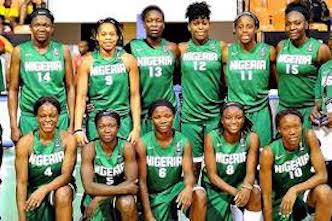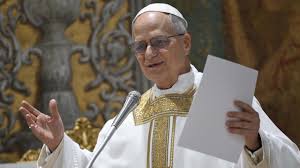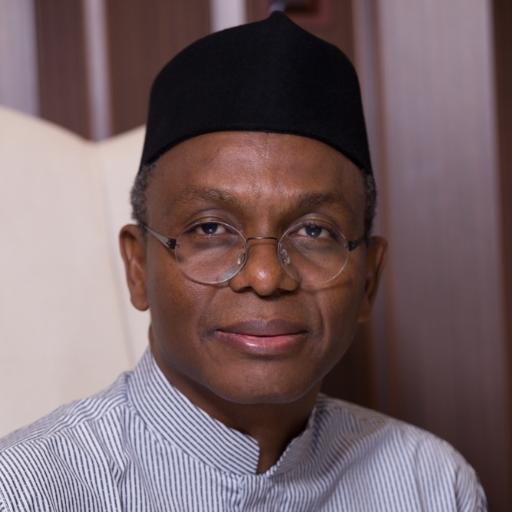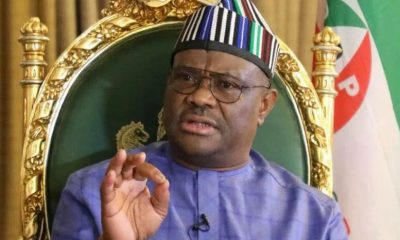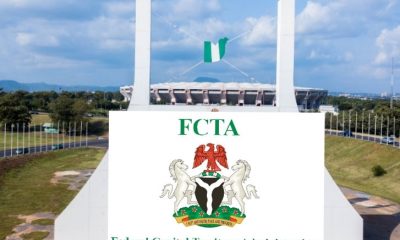Education
FG Approves Partial Reopening of Schools, Inter-state Movement

By Mathew Dadiya, Abuja
The Federal Government has announced a partial reopening of schools but only pupils in Primary 6 and students in JSS 3 and SS3 are allowed to resume to prepare for their examinations.
But all schools including primary schools and daycare centres across the nation remain closed until further evaluation while arrangements will be made for students taking NECO, WAEC and other exams.
The Coordinator of the Presidential Tasks Force (PTF) on COVID-19, Dr.
Sani Aliyu announced the directives on Monday during the National daily briefing in Abuja.Aliyu emphasized that the use of face masks remains mandatory, adding that in government and commercial premises, “no mask, no entry.
”He said: “For educational activities, all day cares and primary schools are to remain closed until further evaluation. Schools are encouraged to continue with e-learning and visual teaching but pupils may proceed to take the national common entrance as soon as is feasible, provided there is compliance with issued non-pharmaceutical interventions.
“For secondary and tertiary institutions, all schools remain closed till further evaluation. Arrangements are to be made for exiting graduating students in JSS3 and SS3 to resume at both boarding and day schools as soon as possible for intensive revision exercises.
“All educational establishments are to conduct exhaustive reviews to ensure compliance with the issued guidelines on COVID-19 before they open up for this purpose and just to clarify they will open up only for the purpose of exiting students.
“Arrangements are to be made for students taking part in the Natural Area Protection Tax Exemption Program (NAPTEP), Business and English Certification (BEC) exams, West African Examinations Council (WAEC) examinations, National Examinations Council (NECO) and sub-exams respectively.
All schools must comply with the six recommended steps and required measures to be issued by the Federal Ministry of Education before an institution is reopened in the timeline to be provided.”
Chairman of the Task Force on COVID-19 and Secretary to Government of the Federation (SGF), Boss Mustapha, explained why some categories of schools had to be reopened.
He said: “It is not an easy decision but we are mindful of the fact that even prior to COVID-19, we have 15 million children out of school.
“So what do we do with those that are in school, do they constitute part of this now or do we do something. We measured the risk and see how best we can help the graduating ones. We are not talking about everybody going back to school, we are talking about the graduating classes, the primary six, if we don’t do something about them, they can’t proceed to secondary school. So, they would not lose a year.
“The same thing with JSS3, if you don’t do anything, because they can only qualify to move if they pass a certain examination. So, if you stop them, it means we would not have the prospect of people graduating.
“The same with SS3, there is a certain examination that qualifies you to go into the university, that is WAEC, in addition to JAMB or whatever qualifying examination that you have.
“WAEC is not under our exclusive control. The five Anglophone West African countries constitute WAEC. If other four are ready and we start the examination say in the month of August, Nigeria cannot isolate itself. It means that those that are to graduate to the universities next year would not be able to graduate.
“So, we say these classes that would be graduating, can we do something to accommodate them in such a way that they would just show up for the purposes of the examination.”
Funerals, weddings reduced to 20 people
The National Coordinator also said attendance of funerals and weddings have been reduced to 20 people including family members.
Aliyu said: “So I’ll be taking you through some of the changes, as the chairman said we are extending Phase 2 of the response with slight modifications.
“The PTF has identified certain areas of concern that require attention and which will undergo a further revision.
“These are particularly areas involved with international air travel, entertainment activities, educational sector, services and public and private sector services.
“The PTF in the past has stated that the aim of phase two was to sustain the gains from earlier steps and faces in terms of the pandemic control.
“It’s also important to state that we relaxed the response partly to enable additional sectors of the economy restart activities.
“In this regard we seek to consolidate the gains in the areas of the economy while trying to ensure better compliance with the health-based response.
“Specifically therefore, the following areas will be sustained and modified under the extended phase of the eased locked down as approved by Mr. President:
The current nationwide curfew would remain. We will maintain restrictions on mass gatherings and sporting activities.
“Domestic Aviation Services will recommence. Movement across state boundaries will be allowed but only outside curfew hours.
“Federal and state government offices will maintain their current timing with only essential staff allowed at the same level of grade level 14 and above resume work.
“The use of face masks remains mandatory and we will be enforcing this at all levels including linking up with state governments.
“Access to government and Commercial premises will not be allowed if you are not wearing a face mask, in other words no mask no entry, no mask no services will be provided in government premises and Commercial premises.”
The Coordinator also explained in details some of the areas that not much has changed.
He said: “So the curfew for instance remains at 10 p.m. to 4 a.m. nationwide. People are allowed to go out for work and to buy food and exercise as well as continue to move between local governments, especially in areas that are not high burden local governments, but we still strongly recommend avoiding unnecessary contact with people.
“For the aviation industry, the aviation industry is allowed to resume domestic operations as soon as practicable in line with existing international and local guidelines on covid-19.
“For Interstate travel, movement across state borders will be allowed only outside curfew times effective from the 1st of July to allow the industry to prepare over the next 24 hours.
“In particular, we expect the transport industry to adhere to the Federal Ministry of Transportation safety protocol and guidelines that will be released, specifically in relation to parks and terminals that will be restricted access with disinfection and sanitization. Waiting area for passengers must have social distance in measures, there has to be posters and notices on conduct of persons, temperature checks, if you are not wearing a mask, you will not be allowed entry into the parks and terminals.
“We also expect transporters to arrange for crowd control, buses should have a maximum of 50 percent capacity each bus trips.
“We strongly urge windows to be kept open particularly for short trips and face mask is mandatory.
“State governments through their commissioners of transport shall undertake inspection of facilities and confirm compliance as a precondition to resumption of interstate travel and non-compliance with the guidelines would result in withdrawal of permission to operate Interstate mass transit. The PTF expects this to be enforced at the state level.
“For Interstate travel, we will maintain the occupancy level for buses to 50 percent and two passengers for taxes, but we will restrict movement in high burden-local government areas to essential travel only. This will be part of the hotspot strategy that will be introduced.
“For industry and labour, they will maintain normal working hours based on the curfew arrangements apart from government offices that will have a separate working hour schedule and offices must maintain working at 75 percent capacity.
“For banks and financial institutions, they will operate normal working hours with no change. For government offices there is no specific change, working hours remain 9 a.m. To 2 p.m. from grade level 14 and above.
“But personalized services, mechanics, artisans, hair salons etc who own their workshops, workstations and can clearly adhere to non-pharmaceutical interventions will be permitted to operate as normal.
“For markets, there is no specific change to what we already have in Phase 2 and this will be driven by local authority arrangements.
“For hotels, restaurants and eateries there is no specific change. Hotels must observe all mandatory non-pharmaceutical interventions, restaurants to remain closed for eating with strict cleanliness guidelines except for restaurants that are serving Hotel residents.
“Bars, gyms, cinemas, event centers and nightclubs remain closed and this will be enforced.
For churches and mosques, no specific change phase 2 remains.
For recreational parks /communal Sports, restriction on communal Sports remains as well as the restriction on recreational parks until further evaluation.
For funerals and weddings no particular change, funerals and weddings to be limited to 20 people including close family members.
“In summary, the PTF has recommended to Mr. President and Mr. President has approved the extension of phase 2 of the response with minor modifications.
“We are requesting for full compliance by the general public. We have to get this right and this time around we really need to stop playing Russian roulette with our life because if we continue to expose ourselves to covid there’s no doubt that people will die.
The Presidential Task Force on Covid-19, therefore, called on all political, community and religious leaders to continue to support them to make sure that the communities are aware of the risks of the viral pandemic and improve the level of compliance.
Education
UniAbuja Council Appoints Two Deputy Vice-Chancellors
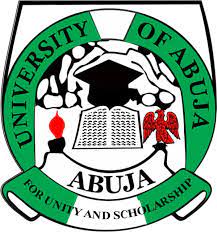
The Governing Council of the University of Abuja, chaired by Sen. Olanrewaju Tejuoso, has approved two new Deputy Vice-Chancellors.
This was contained in a statement on Sunday by the Acting Director of Information and University Relations, Dr Habib Yakoob.
The institution is now known as Yakubu Gowon University.
Yakoob said Prof.
Rosemary Udeozor was appointed Deputy Vice-Chancellor, Academic, while Prof. Muhammad Ndagi became Deputy Vice-Chancellor, Administration.He said the appointments were ratified at the council’s 82nd extraordinary meeting held on Feb. 13.
“The two senior academics were earlier returned unopposed following the recommendation of the Vice-Chancellor, Prof.
Hakeem Fawehinmi,” he said.He added that the appointments take effect from Feb. 13 for two years, in line with the university’s extant laws.
“In their acceptance speeches, they pledged to support management’s strategic direction and work closely with the Vice-Chancellor,” Yakoob said.
Udeozor is a Professor of Educational Administration and Planning in the Department of Educational Management, Faculty of Education.
She obtained BA Ed, MEd and PhD degrees from the University of Nigeria, Nsukka, and joined the university in 1995, becoming professor in 2009.
She previously served as Director of the General Studies Unit and Deputy Director of the Centre for Distance Learning.
Udeozor is a member of the Nigerian Academy of Education and the Commonwealth Council for Educational Administration and Planning.
Ndagi is a Professor of Arabic Linguistics in the Department of Arabic.
He holds degrees from Ahmadu Bello University, Zaria, and the International Institute for Arabic Language, Khartoum.
With over 45 years in teaching, he has served as Dean of Arts and Deputy Dean of the School of Postgraduate Studies.
He is a Fellow of Arabic Studies in Nigeria and has contributed extensively to academic publications and language policy initiatives.
In another development, the council approved the extension of Malam Sambo Mohammed’s appointment as Acting Registrar.
Yakoob said the decision was taken at the council meeting held on Feb. 5.
“He will continue to serve pending the conclusion of the process for appointing a substantive registrar,” he said.
Education
JAMB Insists UTME Registration Closes Feb. 26 with no Extension

The Joint Admissions and Matriculation Board (JAMB) has reminded prospective candidates that registration for the 2026 Unified Tertiary Matriculation Examination (UTME) will close on Feb. 26.
The board advised candidates intending to sit for the examination to complete their registration immediately, stating that the deadline would not be extended under any circumstance.
This was contained in the board’s weekly bulletin released on Monday.
The board expressed concerns over the low turnout of candidates at several accredited registration centres at this stage of the exercise.
It said that the recurring trend of delaying registration until the last minute and then agitating for extension would not be tolerated in 2026.
“This recurring pattern, where candidates deliberately delay registration until the final days and subsequently begin to agitate for an extension, will not be entertained in 2026.
“JAMB is fully aware of the deliberate tactics of examination cheats and individuals masquerading as tutorial centre owners, who misleadingly advise candidates to delay registration until the last minute.
“This strategy is often aimed at forcing an extension of the registration period, thereby enabling the mass movement of candidates to centres in groups, which facilitates examination malpractice,” it said.
JAMB explained that the 2026 UTME registration commenced on Jan. 26 and was scheduled to last for five weeks, noting that the timeline remained unchanged.
The board disclosed that about one million candidates had so far indicated interest in the examination, while many had procured their ePINs and were expected to complete registration promptly.
It added that extending the registration period was impracticable because its operational calendar was aligned with those of other examination bodies.
JAMB advised candidates to register early, avoid last-minute rush and disregard any suggestion that the deadline would be extended.
The board emphasised that it would not be responsible for candidates who failed to act within the stipulated time.
Education
NECO Releases External SSCE Results 52 Days after Exams

From Dan Amasingha, Minna
The National Examinations Council (NECO) has released the results of the 2025 Senior School Certificate Examination (SSCE) for External Candidates, 52 days after the last paper was written, with 71.63 per cent of candidates achieving five credits and above, including English Language and Mathematics.
The results were announced yesterday at NECO’s headquarters in Minna, Niger State, by the Registrar and Chief Executive, Prof.
Dantani Wushishi, during a press briefing and a video statement posted on the council’s official X handle.According to Prof. Wushishi, a total of 96,979 candidates registered for the examination, comprising 51,823 males (53.
43 per cent) and 45,156 females (46.56 per cent). Out of this number, 95,160 candidates actually sat for the examination, which covered 16 subjects.A breakdown of the performance shows that 93,425 candidates sat for English Language, out of which 73,167, representing 78.32 per cent, obtained credit and above. In Mathematics, 93,330 candidates participated, with 85,256 candidates, or 91.36 per cent, scoring credit and above.
Overall, 68,166 candidates, representing 71.63 per cent, obtained five credits and above, including English Language and Mathematics. In addition, 82,082 candidates, or 86.26 per cent, achieved five credits and above irrespective of English and Mathematics.
Prof. Wushishi reiterated NECO’s zero tolerance for examination malpractice, noting that while standards and examination integrity were maintained from planning to result release, cases of malpractice increased significantly. He disclosed that 9,016 cases of examination malpractice were recorded in 2025, compared with 6,160 cases in 2024, representing an increase of about 31 per cent.
As part of disciplinary measures, five supervisors—two from the Federal Capital Territory and one each from Kano, Adamawa and Ondo States—were recommended for blacklisting for aiding and abetting malpractice. Additionally, four examination centres—two in Niger State and one each in Yobe and Kano States—were recommended for de-recognition over involvement in whole-centre malpractice.
The Registrar advised candidates to check their results on NECO’s official website using their examination registration numbers.
The SSCE External Examination is designed mainly for private candidates who are outside the regular school system, including those seeking to obtain certification or improve previously earned grades.





